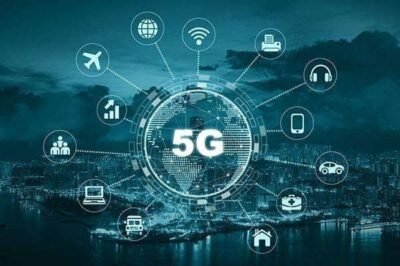As the world embraces 5G technology, the future of communication is set to change dramatically. Offering significantly faster internet speeds, reduced latency, and the ability to connect more devices than ever before, 5G networks will revolutionize how we live, work, and interact with the digital world. With its wide-ranging applications across industries, mobile technology is entering a new era, shaping the way communication systems function globally.
What is 5G Technology?
5G technology is the fifth generation of wireless networks, designed to provide faster and more reliable internet connectivity. While 4G networks already enable fast data speeds, 5G takes it several steps further, promising download speeds up to 100 times faster. This means that tasks like streaming high-definition videos, downloading large files, or playing online games will happen with little to no delay. The core advantage of 5G lies in its ability to reduce latency—the time it takes for data to travel from one point to another—making real-time communication more efficient than ever before.
Faster Internet Speeds and Their Impact
One of the most obvious benefits of 5G technology is faster internet speeds. With the ability to handle speeds up to 10 gigabits per second, 5G will enable smoother streaming, quicker downloads, and seamless communication. For users, this translates into a vastly improved online experience, from video calls to gaming and everything in between.
Faster speeds are not just about convenience; they are critical for advancing areas like virtual reality (VR) and augmented reality (AR), which require high bandwidth and low latency. In the business world, 5G networks will enhance productivity by allowing cloud-based applications to run more efficiently and enabling businesses to adopt more advanced, data-heavy technologies.
Transforming the Future of Communication
5G technology is not just about speed; it will also redefine the future of communication by supporting a massive number of connected devices. In the era of the Internet of Things (IoT), where billions of devices—from smart home gadgets to industrial sensors—are connected to the internet, 5G will provide the infrastructure to manage this data-heavy ecosystem.
For instance, in smart cities, 5G will allow real-time data sharing between connected devices, from traffic lights to security systems, optimizing everything from urban planning to energy use. Additionally, mobile technology will see a significant boost, as 5G enables enhanced mobile experiences, with faster browsing, uninterrupted video calls, and innovative applications in areas like health monitoring, autonomous driving, and remote working.
The Future of 5G Networks and Global Connectivity
As 5G networks continue to roll out globally, they will bridge the digital divide by providing connectivity in underserved areas. The broader deployment of 5G will create more opportunities for individuals and businesses, particularly in rural and developing regions where internet access has been limited.
The future of communication will be characterized by hyper-connectivity, where people and devices interact seamlessly across vast distances. With its transformative potential, 5G technology is laying the groundwork for the next wave of innovation in communication, bringing the world closer together in ways that were previously unimaginable.
Conclusion: A New Era of Communication
5G technology is poised to reshape the future, enabling faster, more reliable, and far-reaching communication. From revolutionizing mobile technology to creating smarter cities, 5G will significantly impact both personal and industrial communication, leading to a more connected and efficient world. As 5G networks continue to expand, the possibilities for innovation and global connectivity are endless.








Leave a Reply